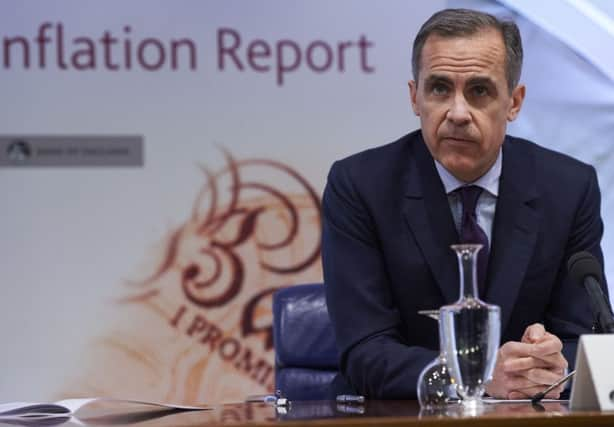Cash '˜trashed' as investors make hay in era of low interest rates


Since the financial crisis, cash savers have seen returns on their deposits all but vanish. The full extent of their troubles has been revealed by research carried out by Hargreaves Lansdown.
The British fund firm estimates that the UK’s cash savers have lost £160bn in lower interest payments, compared with the rates they were receiving before the financial crisis. This is equivalent to £6,000 per household in the UK.
Advertisement
Hide AdAdvertisement
Hide AdMeanwhile, there has been an explosion in assets held in bank accounts paying no interest, according to Hargreaves Lansdown.
The amount of money held by households in non-interest bearing accounts now stands at £164bn, compared with £33bn at the beginning of 2008.
Laith Khalaf, a senior analyst at Hargreaves Lansdown, said: “Loose monetary policy has obliterated the returns enjoyed by cash savers, who now face an eighth year of rock bottom interest rates, with little sign of any respite.
“Cash has been trashed, while shares and property prices have been given a leg up by the low cost of borrowing.
Advertisement
Hide AdAdvertisement
Hide Ad“Looking forward, the plunging oil price has taken over from the global financial crisis in discouraging the Bank of England from raising interest rates. The deflationary effect of cheaper fuel and energy is likely to keep policy makers hiding in their dovecotes for some time to come.
“Indeed markets are now pricing in a higher chance of an interest rate cut than a rise this year. At the moment UK monetary policy is being held in check by two opposing forces; low inflation on the one hand, and a growing economy on the other. Should the economy falter, the scales will start to tip towards loosening monetary policy once again, either through an interest rate cut, or more quantitative easing.
The current low inflation environment does at least mean cash returns don’t look quite as rotten as they might, though that will be pretty cold comfort to savers.”
Robert Hudson, a professor of finance at Hull University Business School, said: “The post-crisis period of low interest rates has already lasted for longer than many market observers predicted and seems set to become the new norm.”
Advertisement
Hide AdAdvertisement
Hide AdAccording to Professor Hudson, such a long period of low rates is historically unprecedented. It is causing considerable wealth transfers between different sections of the population, with borrowers and holders of real assets such as property and shares faring much better than savers.
He added: “So people who have just bought their second buy-to-let will be feeling the benefit of current policies much more than traditional thrifty bank or building society savers.”
So what options do savers have? Apart from grinning and bearing it, savers could put their cash away in an ISA, according to Hargreaves Lansdown. Other options could include turning to Government and corporate bonds.
If you’ve cash savings which are for long term goals, you might consider investing in the stock market, although Hargreaves Lansdown points out that this comes with the additional risk that you could get back less than you invest.
Advertisement
Hide AdAdvertisement
Hide AdA Hargreaves Lansdown spokesman said: “In response to falling interest rates many savers have turned to alternative finance to provide better returns, and peer to peer lending platforms have been at the forefront of this trend.
“These platforms allow individuals to lend money directly to other individuals and to companies, typically picking up an attractive rate of interest in return.
“There are of course risks, in particular that the person or company you lend money to fails to pay it back. Different lending platforms have different ways of protecting investors from such events.”
LOW interest rates, and lower energy prices, will undoubtedly benefit the spenders among us, according to Carolyn Black, the associate director at investment management firm Myddleton Croft.
Advertisement
Hide AdAdvertisement
Hide AdIn common with Hargreaves Lansdown, Ms Black believes that an alternative option to direct equities would be a UK equity unit trust “which provides investors with greater diversification and can...reduce the risk inherent with equity investing”.
She added: “Investment trusts which focus on alternative assets classes such as utilities, property and infrastructure have also proved popular in this low interest rate environment.”